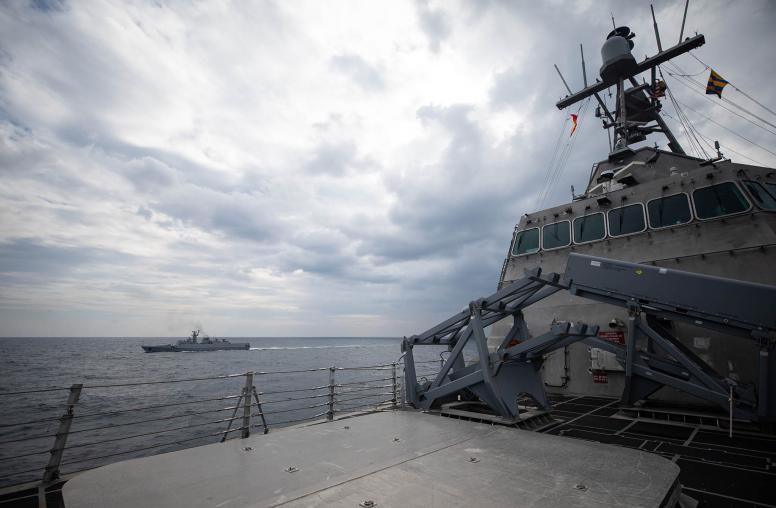Negotiation and Conflict Resolution for Public Health Professionals
Johns Hopkins University/U.S. Institute of Peace Task Force on Public Health & Conflict Symposium Series
The Task Force on Public Health & Conflict, sponsored by the Education program, continued its activities Friday, January 26, 2007, with a workshop: Negotiation and Conflict Resolution for Public Health Professionals. It was run by Linda Bishai, senior program officer in the Education program, and Nina Sughrue, senior program officer in the Training program.
Bishai has been working with interested students and faculty at the school since spring of last year when the Task Force was formed. Participants at the workshop included students in the Masters of Public Health program, doctoral students and two Humphrey Fellows. It was a group with significant international experience and they were all very interested in the program, which included sessions on conflict analysis, using the curve of conflict, and styles of negotiation.
The highlight for everyone, however, was the chance to apply the lessons in a simulation involving a humanitarian emergency in a post-conflict situation. Participants were amazed at how difficult it can be to reach agreement in situations where there are many complicated and competing interests. Everyone was appreciative of the opportunity to get this kind of experience and several suggested that a full semester course would be even better. One participant commented that the workshop revealed a side of public health not seen before.
The Task Force will continue its activities with a symposium on Conflict and Health in Afghanistan on February 8, 2007, a symposium on Conflict and Health in Iraq on March 22, 2007, and a public event featuring Harvard Professor of Public Health, Dr. Christopher Murray on April 20, 2007.
Task Force Events:
Armed Conflict as a Public Health Problem: Current Realities and Future Directions
April 20, 2007
Defining Conflict and Its Effects on Health: Case Study on Iraq
March 22, 2007
Negotiation and Conflict Resolution for Public Health Professionals
January 26, 2007
Defining Conflict and Its Effects on Health: Case Study on Afghanistan
February 8, 2007
Understanding Conflict and Its Relationship to Public Health: Case Study on North Korea
November 16, 2006
About the Task Force
The aim of the USIP/JHSPH Task Force on Public Health and Conflict is to assist practitioners to better fulfill their public health objectives by equipping them with conflict analysis tools as a part of the education in the public health curriculum. Public Health professionals who have a better understanding of the larger political context of health crises will also have a better understanding of the political options available for addressing such crises. In turn mediators, negotiators, and peacebuilders will enhance their ability to make broad and lasting peace when they consider the health implications of their policies and agreements.
Events
Through a series of encounters among scholars, practitioners, and students, the Task Force is taking steps toward raising the profile of conflict analysis and resolution in the field of public health education. The first of these encounters took place on November 16 and examined the case of North Korea. Additional symposia will cover Afghanistan and Iraq. This winter, USIP will run a conflict analysis and resolution workshop for public health professionals. In April, the Task Force hosts Dr. Chris Murray to speak on the peacebuilding effects of




